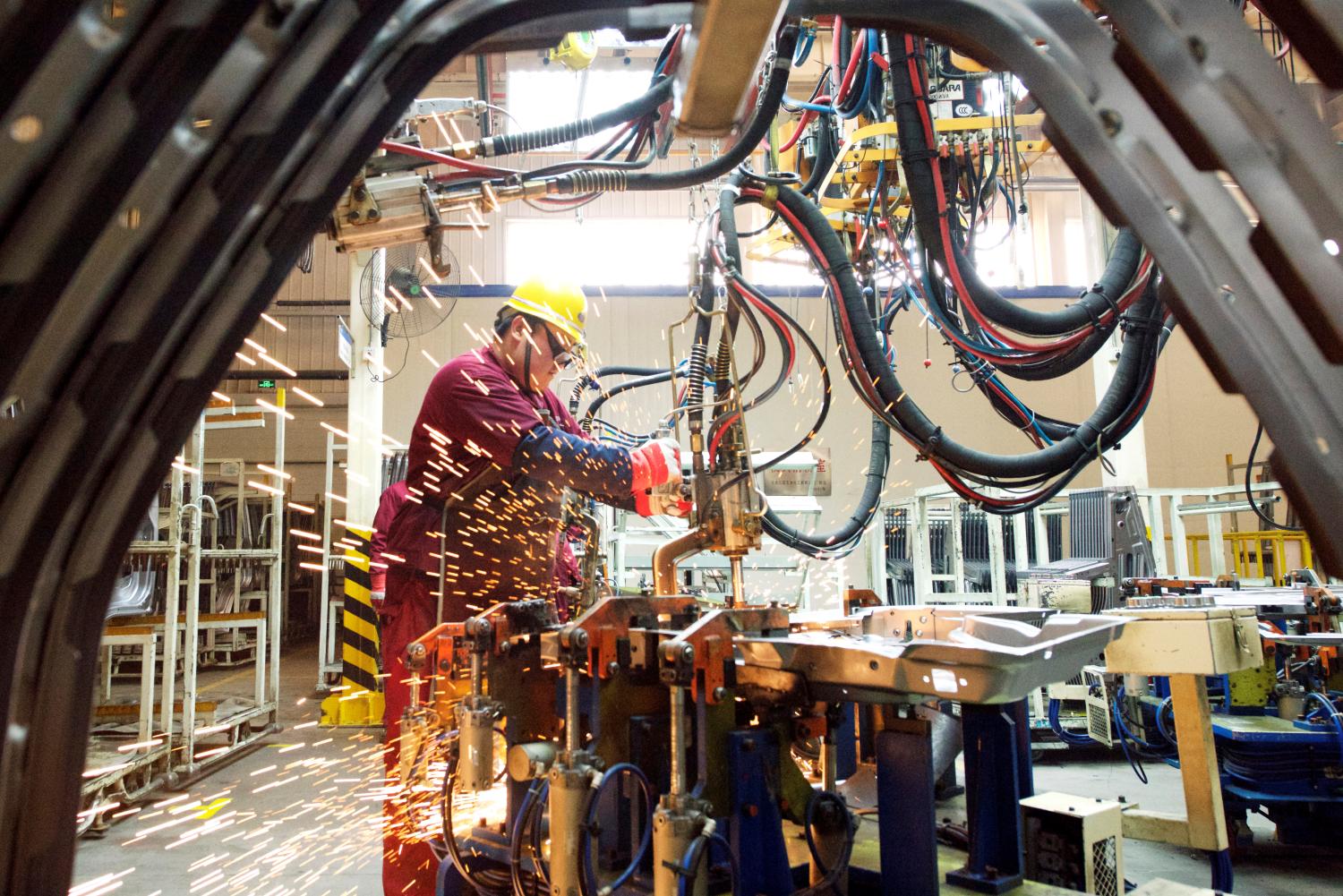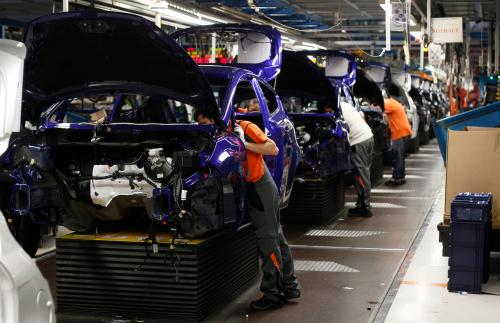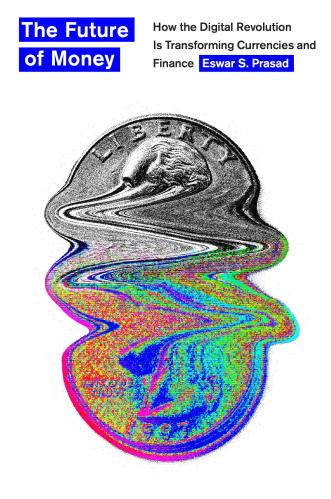This report is the result of a joint project between Brookings and the Chumir Foundation for Ethics in Leadership. It was designed to test certain hypotheses summarized below with the intention of contributing to an informed and constructive dialogue and policy response on a condition that is part of considerable malaise seen in a great many communities around the world.
Over recent decades, the world’s major economies have experienced, progressively and concurrently:
- a low level of aggregate productivity improvement,
- low levels of investment,
- slow output growth,
- increasingly disparate income distribution and
- twice the differential in wealth distribution.
Public sector redistribution to offset income disparity has declined over the period.
This has been occurring while new and highly productive technologies that would be expected to spark economic boom conditions have arisen around us.
The evidence suggests market conditions and public policies—not technological innovation—are the cause of the less than potential economic performance. Further, the same policies and conditions are responsible for the diminished economic performance and the increasingly uneven income distribution. The dominant causes have been deterioration in market competitiveness, reinforced by intellectual property protection domestically and internationally.
Further, new technologies require fewer jobs than in the past for a given output. Those with access to education, training and skilled jobs, particularly in leading firms, capture an increasing share. Those in repetitive and most readily automated middle level jobs, are displaced. Non-leading firms are less driven to invest and compete, fueling less productivity-enhancing technology dissemination and more disparity between dynamic and the remaining firms and the incomes of their personnel. To date, technological innovation is still generating marginally more jobs from replacement and higher income-stimulated demand elsewhere in the economy, although by a declining margin of job increases.
The fact that investors/capital owners and workers/wage earners are both adversely affected by the same current conditions and policies should theoretically facilitate a constructive policy dialogue on solutions, but that is not yet seemingly the case. In fact, resistance to new technology and enhanced trade—two factors that have dominated the forces that increase living standards, are at risk of being politically opposed to the detriment of major economies.
The broad policy approaches identified as being available are:
- the revision of the myriad policies affecting the conditions impacting the two goals of improved economic performance and income distribution; and/or
- new policies that redistribute a sufficient part of the gains to address those adversely affected, without removing incentives to innovate, invest and work – what might amount to a new social contract. The gains of improved performance could more than cover the costs of corrective policies.
Macroeconomic conditions of low interest rates and low-yielding investment discourage investment and leave little room for lowering the cost of capital. This dynamic further impedes the investments needed to get out of a negative cycle.
The result is damaging for social cohesiveness. Performance on these issues is also relevant to the geopolitical interests of the major power countries as influence is increasingly being determined by technological, industrial, and economic performance comparisons.
The stimulation of the same economic performance variables of technology, productivity, growth and income satisfaction features more centrally than at any time in the postwar period in world influence of a country.








